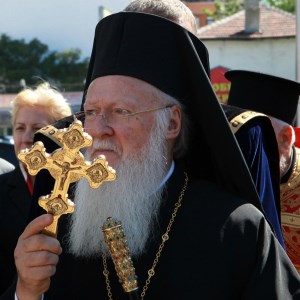There is a growing interest in Martin Luther in the Orthodox Church, above all in Luther’s concept of freedom, the Ecumenical Patriarch, Bartholomew I, said at Germany’s Tübingen University on 30 May, where he was awarded an honorary doctorate for his contribution to Orthodox-Protestant dialogue.
He himself very much welcomed this increasing interest on the part of Orthodox theologians as Luther’s concept of freedom had a turning point in the history of the understanding of freedom and was therefore of “epochal significance” for Christianity’s dialogue with the modern world. It was of special importance for the Orthodox Churches at he moment as their belated dialogue with the modern world was now “in full swing”, he underlined.
There was, however, a “deep rift” between the Christian concept of freedom and the modern idea of freedom in the Western world, Bartholomew warned. Whereas Christian freedom was a gift of God, the modern idea of freedom was self-centred, promoting a version of self-realisation that eventually led to self-isolation.
Addressing the Konrad Adenauer Foundation in Berlin on 2 June, Bartholomew defended the concept of human rights against criticism from fundamentalist Orthodox circles. He also criticised those non-Christian religions which believed that human rights were confined to Western culture and were a symbol of Western imperialism.
Even if the Christian Churches had at first opposed human rights, they were nevertheless now deeply rooted in Christian culture, he said. It was unacceptable for religions to undermine human rights instead of supporting them. This was more important than ever today as human rights were by no means guaranteed and defending them was a permanent challenge.

















